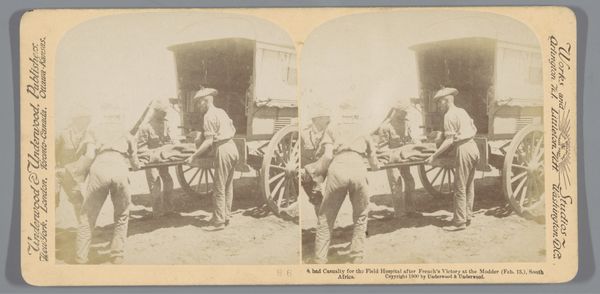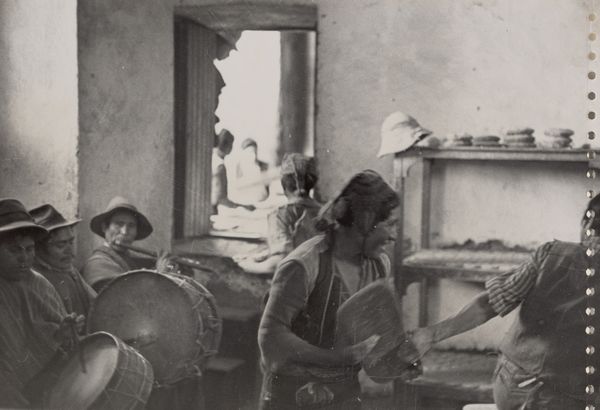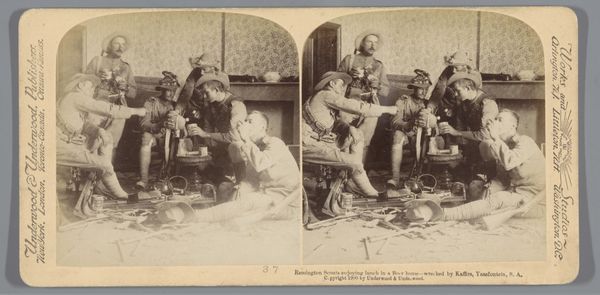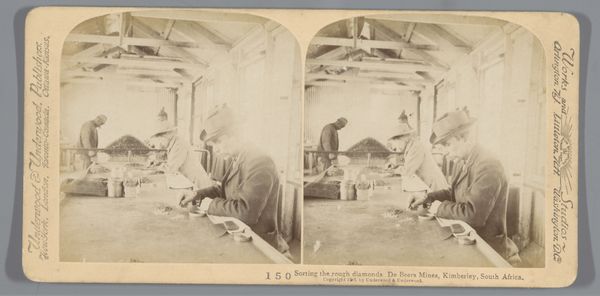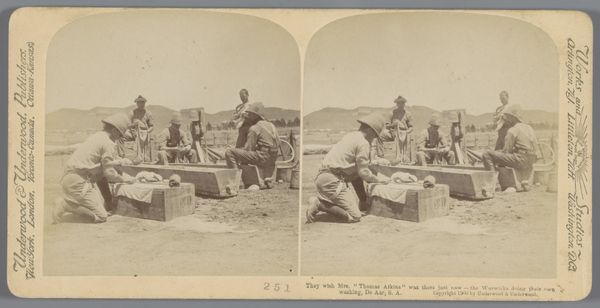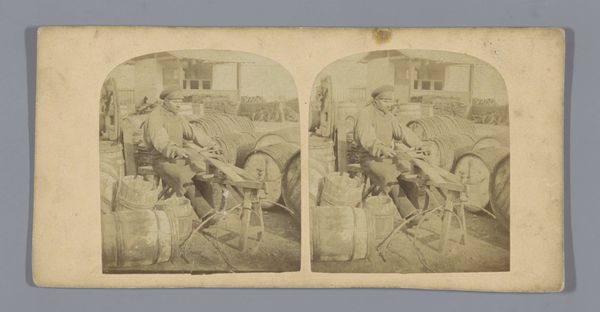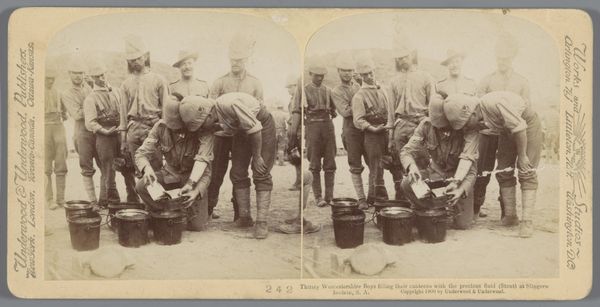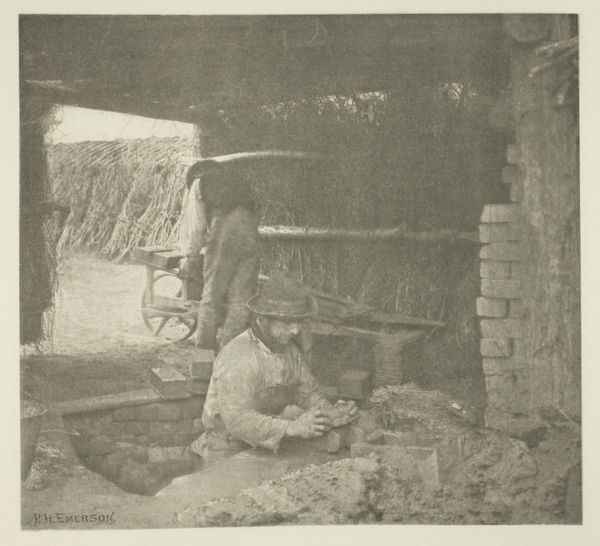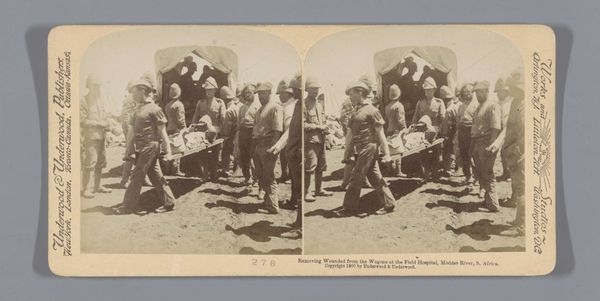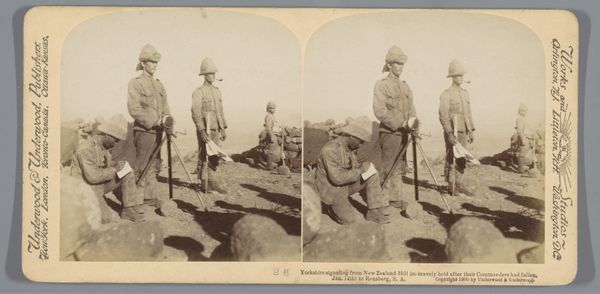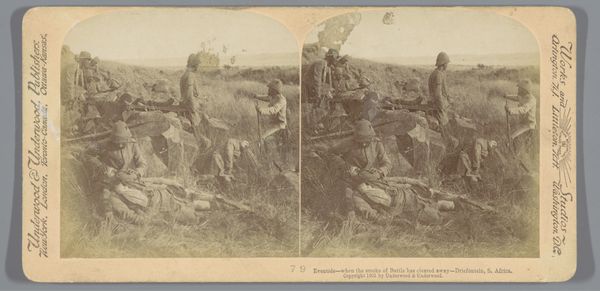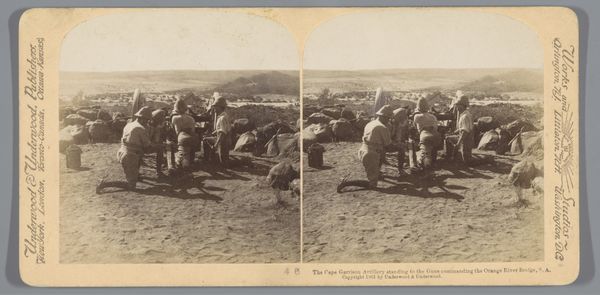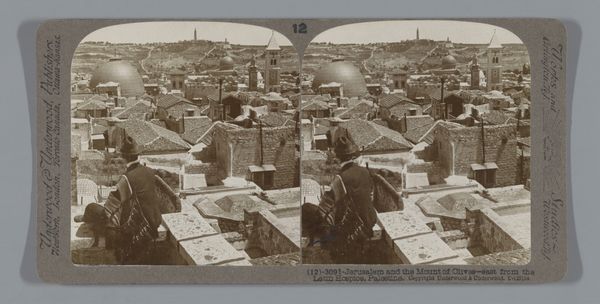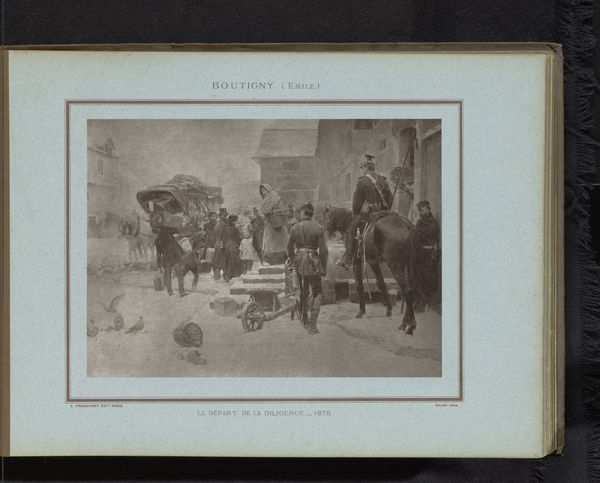
Lord Roberts (Frederick Sleigh Roberts) beraamt de opmars naar Pretoria voor een gebouw bij Rietspruit, Zuid-Afrika 1901
0:00
0:00
photography, gelatin-silver-print
#
portrait
#
water colours
#
photography
#
gelatin-silver-print
#
history-painting
#
realism
Dimensions: height 88 mm, width 178 mm
Copyright: Rijks Museum: Open Domain
Editor: This photograph, "Lord Roberts planning the advance on Pretoria," was taken in 1901, apparently near Rietspruit, South Africa. It’s a gelatin-silver print in stereo format, giving it a real sense of depth. I am struck by how ordinary it seems; a group of men gathered informally. What symbols or visual cues stand out to you in this image? Curator: That apparent ordinariness is precisely where its power resides. Consider the pith helmets. They aren't merely practical; they are potent symbols of British imperialism, shorthand for authority and dominion. The very act of planning, carefully documented and disseminated through these stereo cards, reinforces a sense of strategic control, a cultural narrative of calculated expansion. Note how Roberts is slightly removed, yet clearly the focal point, surrounded by men bending to his direction. Does this arrangement evoke anything for you? Editor: It reminds me of Renaissance paintings of patrons or rulers surrounded by advisors or subjects, reinforcing their power visually. Curator: Exactly. It is an older trope transposed into a new medium and context. Think, too, about the discarded equipment in the foreground, it’s staged. Each element contributes to the constructed meaning. Editor: So even in a photograph, we're still dealing with curated symbolism, intended to project a specific message. It makes me reconsider the role of photography in shaping public opinion during that period. Curator: Indeed. Images like this became tools to reinforce narratives, contributing to a collective understanding and memory of the empire's project. Looking closely at an image can peel back these layers and uncover deeper cultural meanings.
Comments
No comments
Be the first to comment and join the conversation on the ultimate creative platform.
